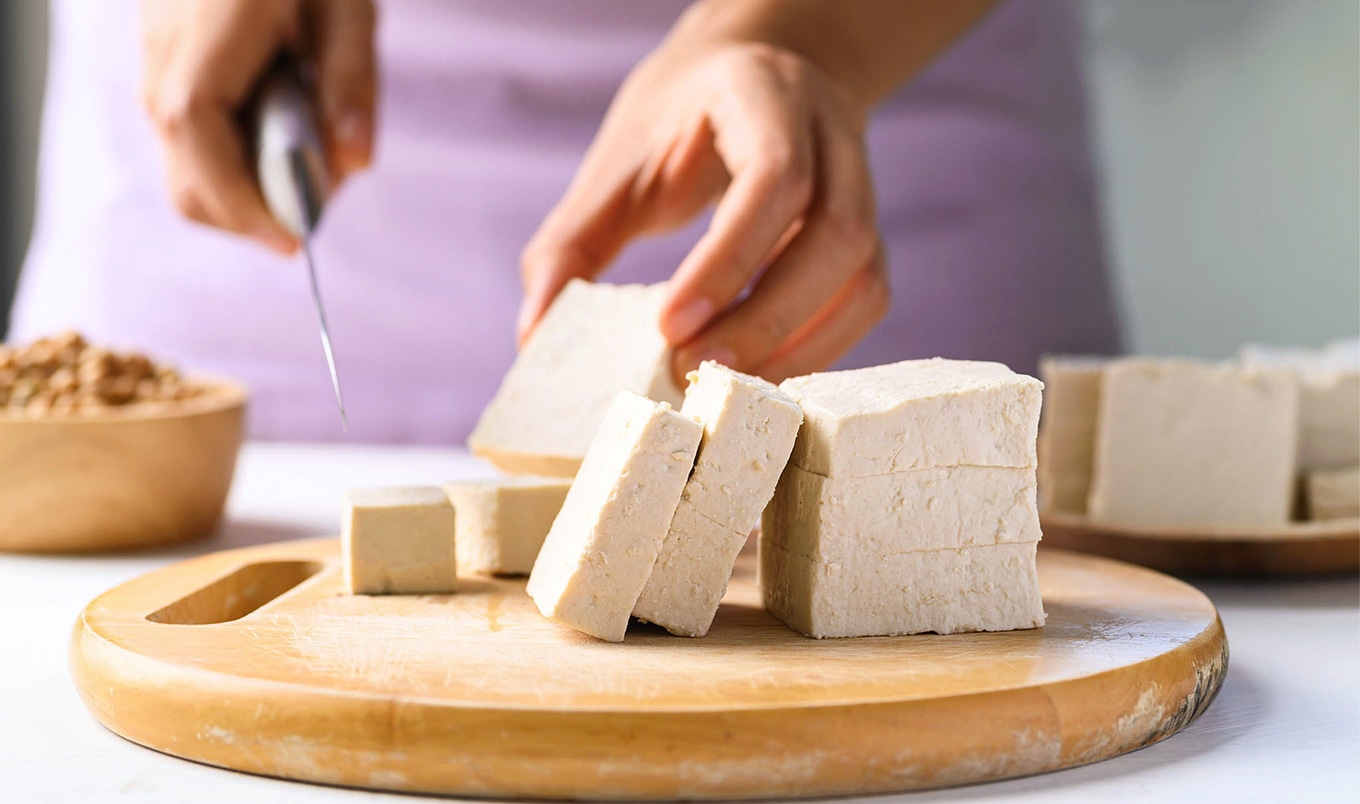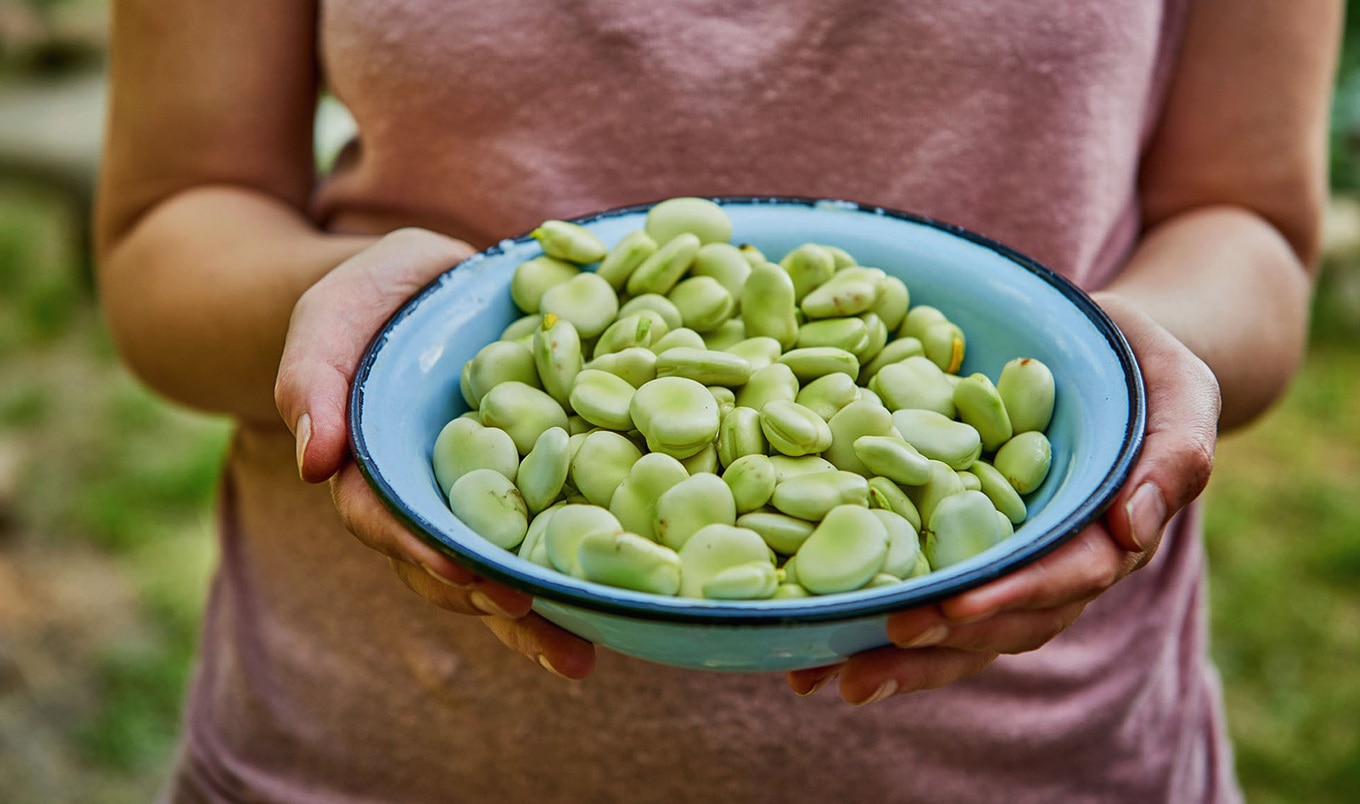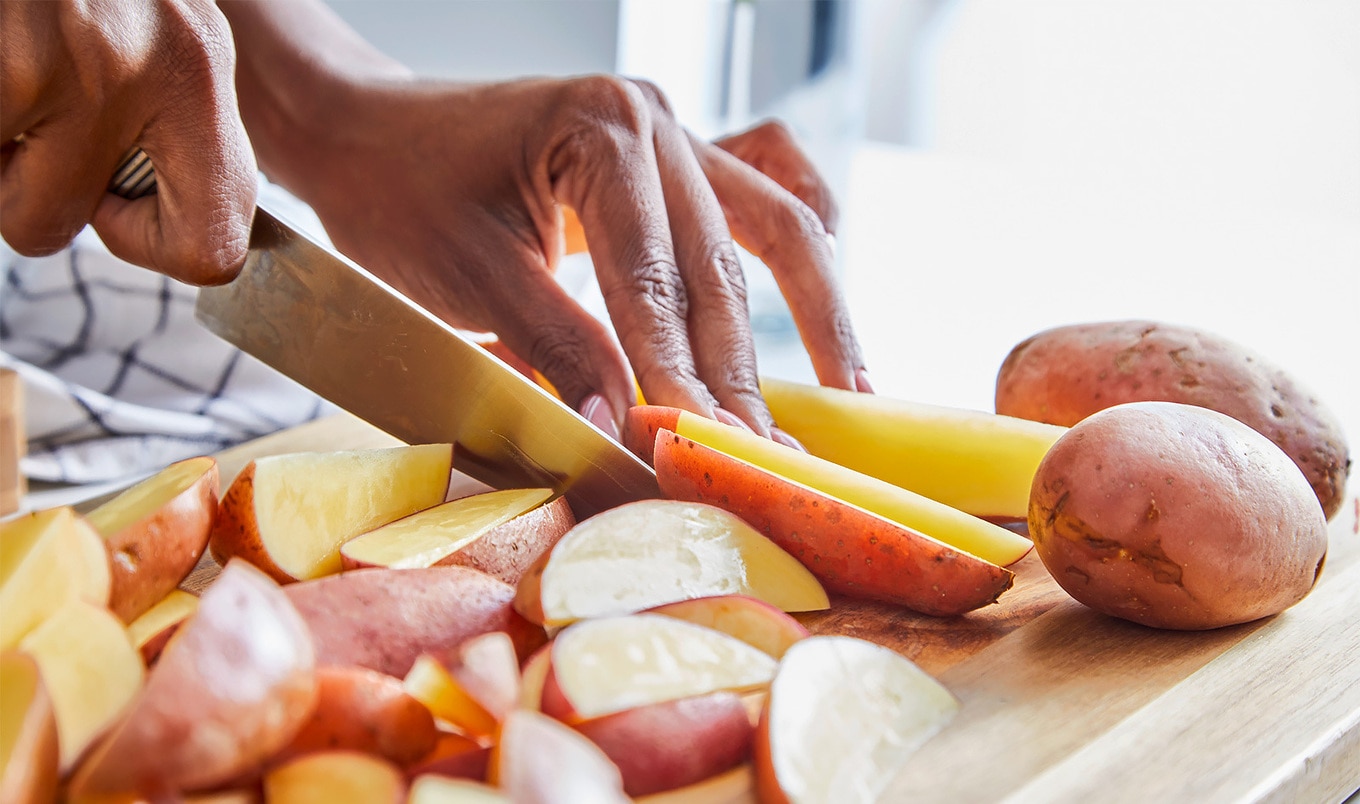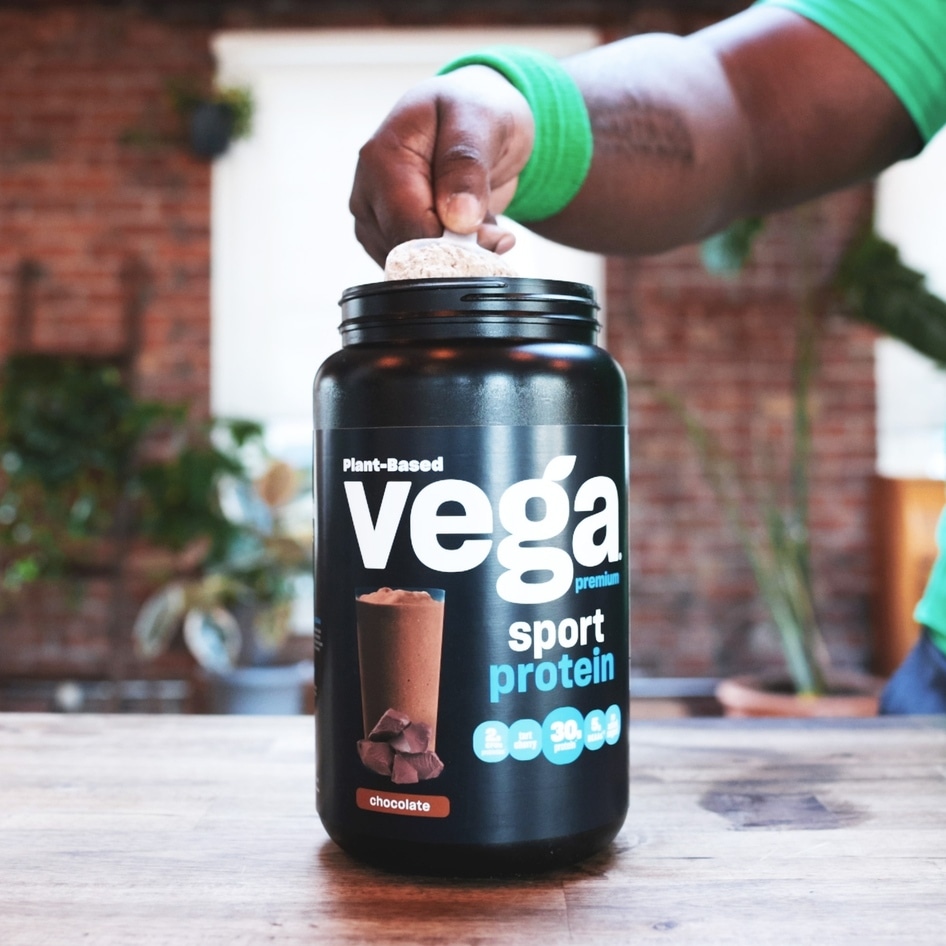Plant-based protein supports building muscle during resistance training as much as an omnivorous diet, according to a study published in the Journal of Nutrition.
The study, undertaken by researchers at the University of Exeter in the United Kingdom and the University of Texas Medical Branch, aimed to determine if a vegan diet can support resistance training to the same extent as an omnivorous diet.
For phase one of the study, 16 healthy female and male young adults completed a three-day diet where protein was derived from omnivorous or exclusively non-animal sources alongside daily unilateral leg resistance exercise.
 nensuria
nensuria
In phase two, 22 healthy female and male young adults completed a 10-week, high-volume (five days per week) progressive resistance exercise program while consuming an omnivorous or non-animal-derived high-protein diet.
Muscle mass was assessed before, during, and after the phases, and the results showed that both groups had the same results. The young adults who followed a plant-based diet showed no significant differences in muscle volume, muscle strength, or muscle fiber size when compared to those who ate an omnivorous diet during training.
The researchers concluded that young adults who consume a high-protein diet, regardless of the protein source being vegan or animal-based, translates to similar responses in muscle building during training.
 GabinVallet/Unsplash
GabinVallet/Unsplash
“Both groups increased [the] strength of multiple muscle groups to comparable degrees,” the study said. Therefore, a high-protein vegan diet is as effective for optimal skeletal muscle development during intense training as non-vegan diets.”
Plant protein for muscle building
This study builds upon growing evidence of the effectiveness of plant-based protein in muscle building. Another study published last year found that men who consume adequate amounts of plant-based protein with soy supplementation can build as much muscle mass as those who eat animal products and whey protein powder.
The study, published in the scientific journal Sports Medicine, aimed to identify the effects of dietary protein sources (exclusively plant-based versus a mixed omnivore diet) on changes in muscle mass and strength in healthy young men who strength train. It included 38 men in a supervised weight-training program comprising two weekly training sessions for three months.
 Adobe Stock
Adobe Stock
The study showed that a plant-based diet composed of whole foods and soy protein supplementation is as effective as an omnivorous diet composed of mixed whole foods and whey protein supplementation for supporting muscle-building and strength.
“A high-protein, exclusively plant-based diet (plant-based whole foods plus soy protein isolate supplementation) is not different than a protein-matched mixed diet (mixed whole foods plus whey protein supplementation) in supporting muscle strength and mass accrual, suggesting that protein source does not affect resistance training-induced adaptations in untrained young men consuming adequate amounts of protein,” the researchers concluded.
Is whey protein best for muscle conditioning?
Another recent study that compared fava beans to milk protein found that fava bean peptides perform better than milk protein in muscle conditioning. While previous studies focused on the potential of animal-derived peptides from sources such as creatine, whey, and collagen, this study aimed to compare the effectiveness of plant-based peptides from fava beans to milk protein supplementation on muscle mass and strength loss during exercise and recovery.
The study, published in the scientific publication The Journal of Nutrition, observed no differences between the fava bean or milk protein supplementation for the loss of muscle size and strength during short-term immobilization or the regaining of muscle size and strength during subsequent remobilization.
 Adobe Stock
Adobe Stock
However, fava bean supplementation resulted in significantly higher muscle protein synthesis rates during the remobilization period when compared with milk protein supplementation.
And yet another study found that potato protein can be as effective as animal-derived milk in building muscle. Published in scientific journal Medicine & Science in Sports & Exercise, the study hypothesized that because potato protein and animal milk protein share a very similar amino acid composition that both might have a similar effect on muscle protein synthesis, or the body’s way of making amino acids into skeletal muscle protein.
 iStock
iStock
After conducting a double-blind study that consisted of 24 healthy males between the ages of 18 to 35, the researchers found both protein sources were comparable when it came to effect on muscle protein synthesis.
“Ingestion of 30 grams of potato protein concentrate increases muscle protein synthesis rates at rest and during recovery from exercise in healthy, young males,” the study concluded. “Muscle protein synthesis rates following the ingestion of 30 grams of potato protein do not differ from rates observed after ingesting an equivalent amount of milk protein.”
For the latest vegan news, read:
JUMP TO ... Latest News | Recipes | Guides | Health | Subscribe









